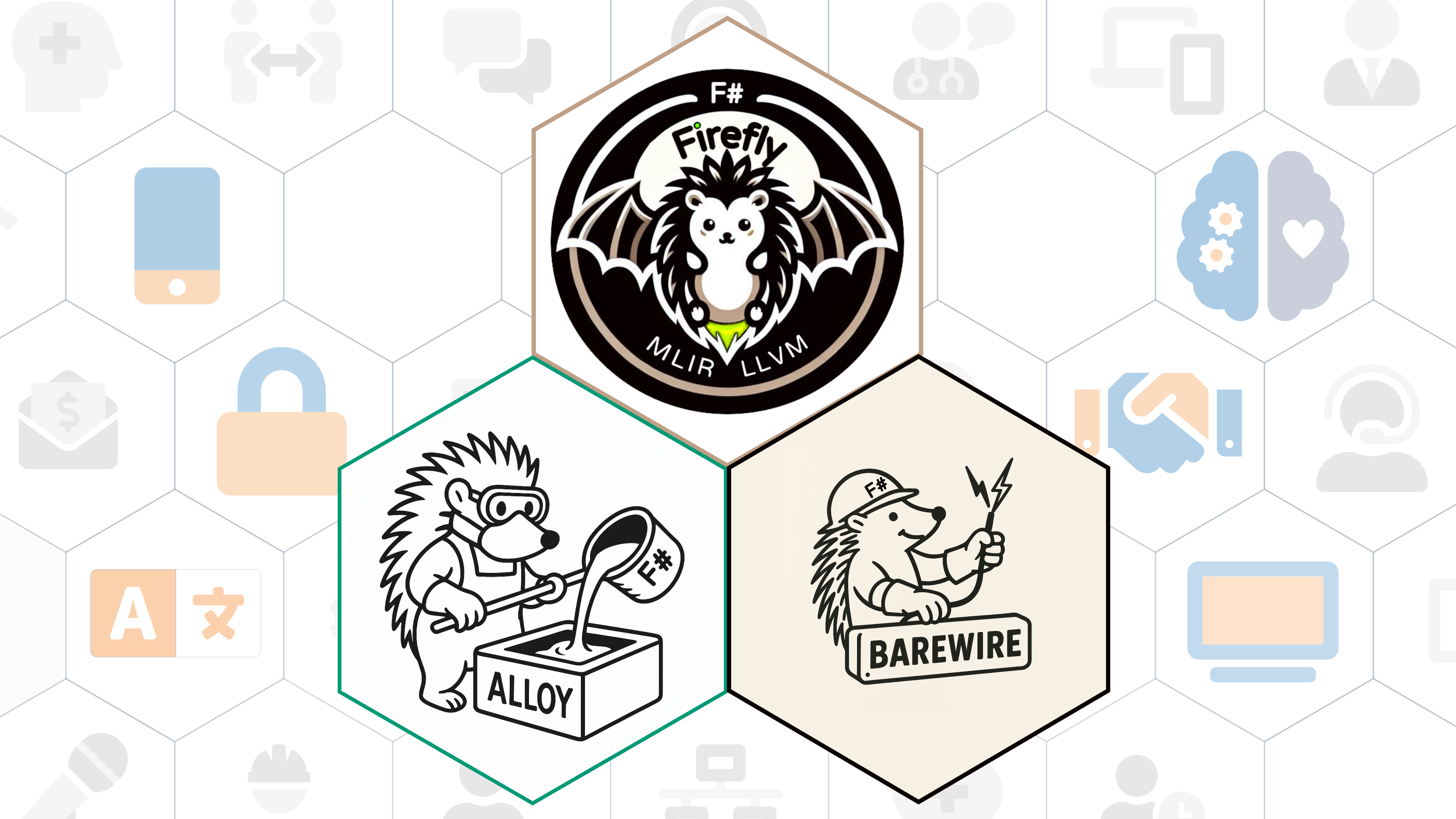Blog posts exploring the concept "Memory-Management"
← Back to all tagsCache-Conscious Memory Management: CPU Edition
Modern computing systems present a fundamental paradox: while processor speeds have increased exponentially, memory latency improvements have been modest, creating an ever-widening performance gap. This disparity manifests most acutely in the cache hierarchy, where the difference between an L1 cache hit (approximately 4 cycles) and main memory access (200+ cycles) represents a fifty-fold performance penalty. For systems pursuing native performance without runtime overhead, understanding and exploiting cache behavior becomes not merely an optimization, but an architectural imperative.
Read More
How Fidelity Solves The Abstract Machine Model Paradox
The blog post “Abstract Machine Models - Also: what Rust got particularly right” makes a compelling case for Abstract Machine Models (AMMs) as a missing conceptual layer between computer science and hardware. The author, reflecting on a failed microprocessor project, discovers that programmers don’t reason about either programming theory or raw hardware, but rather about intermediate mental models that predict extra-functional behavior: execution time, memory usage, concurrency patterns, energy consumption. These AMMs, the author argues, exist independently of both languages and hardware, explaining how a C programmer can transfer skills to Python despite their semantic differences.
Read More
Why F# is a Natural Fit for MLIR
In 1998, Andrew Appel published a paper that heralded a change to how we should think about compiler design. “SSA is Functional Programming” demonstrated that Static Single-Assignment form, the intermediate representation at the heart of modern optimizing compilers, is exactly equivalent to functional programming with nested lexical scope. This insight has profound implications as we enter a new era of hardware-software co-design. At SpeakEZ, this revelation validates our approach with the Fidelity framework more than 25 years after its first publication: lowering F# to native code through MLIR isn’t just possible, it’s aligned to the fundamental structure of well-principled compilation.
Read More
Beyond Zero-Allocation
The journey of building the Fidelity Framework has taught us that meaningful changes require careful conceptual positioning alongside technical innovation. When we first introduced the design of Firefly’s zero-allocation compilation capabilities, we established a foundational principle that continues to guide our architectural decisions: functional programming should compile to efficient native code without runtime dependencies. Today, we want to explore how this foundation extends naturally into our roadmap for memory management, and is consistent with the core principles that make Fidelity unique.
Read More
Discriminated Unions In Post-Transformer AI
The AI industry stands at an inflection point. As detailed in our “Beyond Transformers” analysis, the convergence of matmul-free architectures and sub-quadratic models will lead a fundamental shift in how we build and deploy AI systems. While the research community has demonstrated these approaches can match or exceed transformer performance with dramatically lower computational requirements, our investigation at SpeakEZ has uncovered an intriguing gap: Current tensor-only representations may not optimally capture the heterogeneous computational patterns these models require.
Read More
Farscape's Modular Entry Points
The Fidelity framework’s Farscape CLI addresses a pressing challenge in modern software development: how to enhance the safety of battle-tested C/C++ tools without disrupting the countless systems that depend on them. Every day, organizations rely on command-line tools like OpenSSL, libzip, and many others that represent decades of engineering expertise but carry the inherent memory safety risks of their C/C++ heritage. Farscape’s “shadow-api” design aims to provide a breakthrough solution: the ability to generate drop-in replacements for these critical tools that maintain perfect compatibility while adding comprehensive type and memory safety guarantees.
Read More
Wrapping C and C++
The cybersecurity landscape has shifted dramatically in recent years, with memory safety vulnerabilities accounting for approximately 70% of critical security issues in systems software. This reality has prompted governments and industries to mandate transitions to memory-safe languages for critical infrastructure. Yet the economics of wholesale rewrites are daunting: decades of refined C and C++ code represent trillions of dollars in intellectual property and domain expertise. What if, instead of rewriting everything, we could wrap existing code in provably safe interfaces?
Read More
How Our Innovations Express Our Values
The Fidelity Framework and its ecosystem of technologies represent more than technical achievements, they embody our core values in executable form. Where our Compact establishes how people and groups interact within the SpeakEZ ecosystem, our technical innovations demonstrate these same principles applied to systems design. This alignment between human values and technical architecture is neither accidental nor superficial; it reflects our belief that sustainable innovation emerges when technological choices reinforce rather than contradict constituent needs.
Read More
Scaling FidelityUI: The Actor Model
As we’ve established in previous entries, FidelityUI’s zero-allocation approach provides an elegant solution for embedded systems and many desktop applications. But what happens when your application grows beyond simple UI interactions? When you need to coordinate complex business logic, handle concurrent operations, and manage sophisticated rendering pipelines? This is where the Olivier actor model and Prospero orchestration layer transform FidelityUI from a capable UI framework into a comprehensive application architecture that scales to distributed systems, all while maintaining deterministic memory management through RAII (Resource Acquisition Is Initialization) principles.
Read More
ByRef Resolved
The “byref problem” in .NET represents one of the most fundamental performance bottlenecks in managed programming languages. While seemingly technical, this limitation cascades through entire application architectures, not only hijacking developer productivity but also forcing them into defensive copying patterns that can devastate performance in memory-intensive applications. The Fidelity framework doesn’t just solve this problem; our designs transform the limitation into the foundation for an entirely new approach to systems programming that maintains functional programming elegance while delivering hardware-level performance.
Read More
Static and Dynamic Library Binding in the Fidelity framework
At the intersection of two powerful but largely separate computing paradigms stands the Fidelity framework, a revolutionary approach to systems programming that re-imagines what’s possible when functional programming meets direct native compilation. For decades, developers have been forced into an artificial choice: embrace the productivity and safety of managed runtimes like .NET and the JVM while accepting their performance limitations, or pursue the raw efficiency of direct compilation while shouldering the burden of manual memory management and more complex development workflows.
Read More
Next-Generation Memory Coherence
SpeakEZ’s Fidelity framework with its innovative BAREWire technology is uniquely positioned to take advantage of emerging memory coherence and interconnect technologies like CXL, NUMA, and recent PCIe enhancements. By combining BAREWire’s zero-copy architecture with these hardware innovations, Fidelity can put the developer in unprecedented control over heterogeneous computing environments with the elegant semantics of a high-level language. This innovation represents a fundamental shift in how distributed memory systems interact, and the cognitive demands it places on the software engineering process.
Read More
Memory Management by Choice
Here at SpeakEZ we’re rethinking how developers interact with memory management in systems programming. The conventional wisdom suggests we face a stark choice: embrace the ubiquitous memory burdens of Rust or abdicate all memory concerns and accept the performance penalties of garbage collection. We believe there’s a better way. Mandatory vs. Optional Memory Management Rust’s borrow checker has revolutionized systems programming by statically preventing memory safety issues, but it comes at a significant cost: every line of code must consider ownership and borrowing.
Read More
F# Async From .NET to Fidelity
We at SpeakEZ have been working on the Fidelity framework for a while, and it’s been a journey to find the right balance of familiar conventions with new capabilities. Nowhere is that more apparent than in the async/task/actor models for concurrent programming. The Iceberg Model: Familiar on the Surface, Revolutionary Underneath Think of Fidelity’s concurrency model as an iceberg. Above the waterline, it looks remarkably similar to what you already know:
Read More
The Shifting Computational Landscape and Returning Primacy of Compilers
The computing landscape has undergone seismic shifts over the past three decades, yet many of our foundational software platforms remain anchored to paradigms established during a vastly different technological era. Virtual machines and managed runtime environments like Java’s JVM and .NET’s CLR emerged during the late 1990s and early 2000s as solutions to very specific problems of that time: platform independence, memory safety, and simplified development in an era of relatively homogeneous computing resources.
Read More
The Farscape Bridge
The computing landscape stands at an inflection point. AI accelerators are reshaping our expectations of performance while “quantum” looms as both opportunity for and threat to our future. Security vulnerabilities in memory-unsafe code continue to cost billions annually. Yet the vast ecosystem of foundational libraries, from TensorFlow’s core implementations to OpenSSL, remains anchored in C and C++. How might we bridge this chasm between the proven code we depend on and the type-safe, accelerated future we’re building at an increasing pace?
Read More
The Fidelity Framework: A Primer
The computing world has fragmented into specialized ecosystems - embedded systems demand byte-level control, mobile platforms enforce strict resource constraints, while server applications require elasticity and parallelism. Traditionally, these environments have forced developers to choose between conflicting approaches: use a high-level language with garbage collection and accept the performance overhead, or drop down to systems programming with manual memory management and lose expressiveness. Beyond Runtime Boundaries The Fidelity Framework represents a fundamental rethinking of this dichotomy.
Read More
The Case for Actor-Oriented Architecture
This entry examines the architectural rationale behind avoiding the creation of yet another managed runtime system, instead advocating for our actor-oriented approach. As computing platforms continue to diversify across embedded systems, mobile devices, edge computing, and specialized accelerators, the traditional monolithic runtime model faces increasing challenges. Our approach with the Olivier/Prospero actor model provides the security benefits of managed memory without the restrictions and overhead of conventional runtimes. THE RUNTIME LANDSCAPE: A REPEATING CYCLE The Legacy of Monolithic Runtimes Traditional runtimes like the JVM and .
Read More
RAII in Olivier and Prospero
In our work to bring F# to systems programming, we’re pursuing a vision of deterministic memory management outside the familiar boundaries of managed runtimes. For developers who have only known automatic memory management as an omnipresent runtime service, the concept we’re pursuing - applying RAII (Resource Acquisition Is Initialization) principles to actor-based systems - represents a significant departure from established patterns. Our current research focuses on how three complementary systems work together: RAII-based arena allocation, the Olivier actor model we’re developing, and our proposed Prospero orchestration layer.
Read More
F# Memory Management Goes Native
In the coming waves of “AI” innovation, the computing landscape will continue to fragment into an increasingly divergent array of hardware choices. From embedded microcontrollers to mobile devices, workstations, and accelerated compute clusters, developers will face a challenging decision: build with distinctly different “stacks” for each target or accept the deep compromises of existing cross-platform frameworks. Meanwhile, Python continues its paradoxical ascent, simultaneously becoming the lingua franca of modern computing while quietly imposing an unsustainable tax on engineering resources.
Read More
Rust Revisited: A Study of Similarities and Contrasts
The Rust programming ecosystem has transformed how the software industry views systems programming. By pioneering its ownership system with “borrowing” and “lifetimes”, Rust brought compile-time memory safety into mainstream development. Beyond memory management, Rust’s innovations in zero-cost abstractions, trait-based generics, and “fearless concurrency” philosophy have influenced an entire echelon of language designers. 🔄 Updated September 2025 Aligned with our analysis of Abstract Machine Models and heterogeneous computing Cross-referenced with detailed SRTP vs traits comparison Updated MLIR dialect discussion to include DCont and Inet Clarified PHG architecture and nanopass compilation strategy At SpeakEZ, we’ve analyzed Rust’s design choices while developing the Fidelity Framework.
Read More